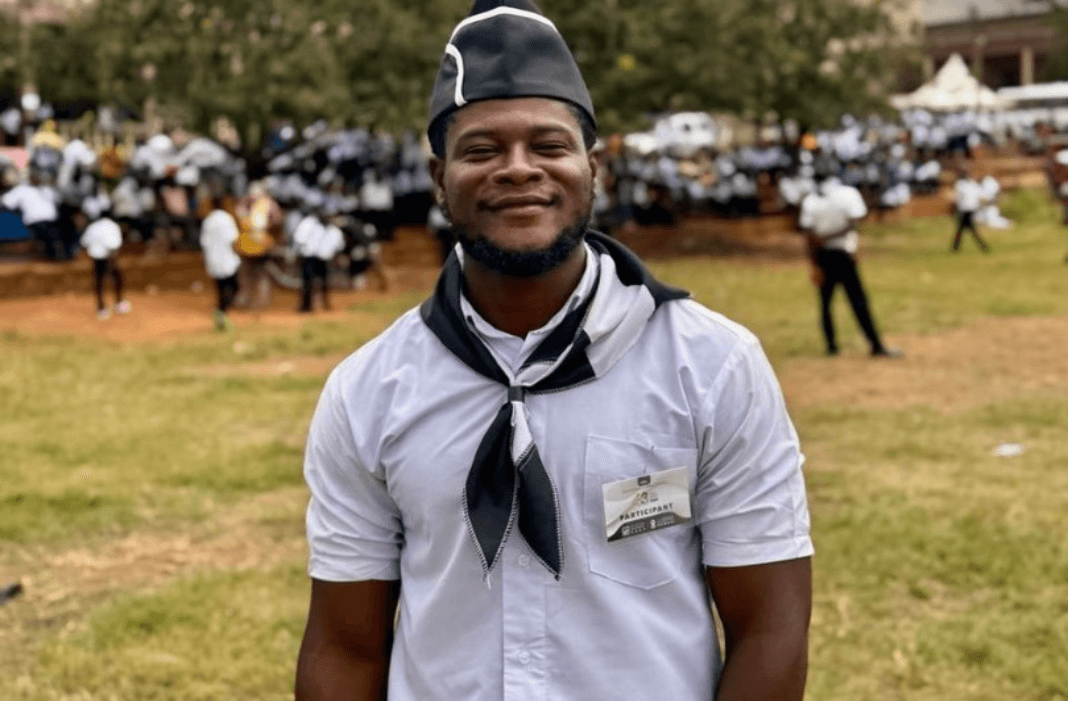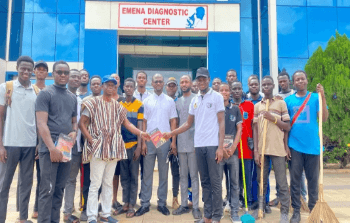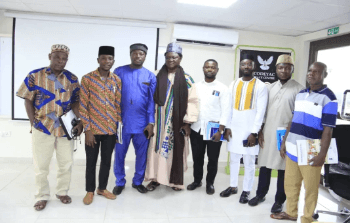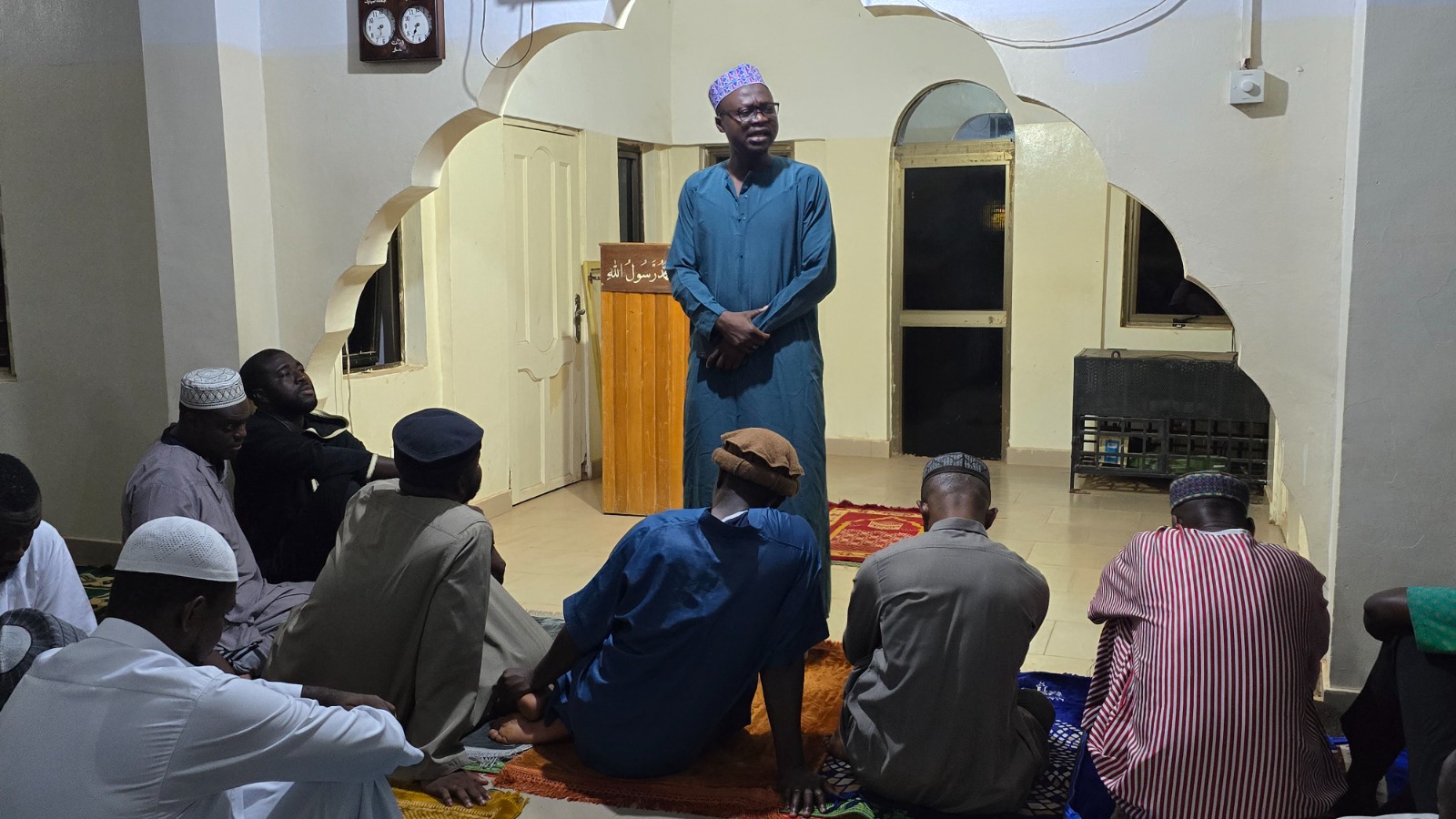
Hanif Bipuah, Esq., Calls for Renewed Accountability in Faith and Financial Discipline
In an honest and heartfelt address, Hanif Bipuah, Esq., Muawin Sadr, Majlis Khuddam-ul-Ahmadiyya Ghana, shared reflections on faith, finances, and personal accountability with missionaries and members of the community during the Nationwide New Year Tahajjud 2025 on January 1st, 2025. His message blended personal stories with spiritual insights, leaving the attendees inspired to introspect and act.
Hanif began by recounting a recent interaction with a fellow member who had shared an Excel sheet used to track income. Reflecting on its profound simplicity, Hanif explained how this system helped his friend remain accountable for every income received, regardless of how small or fleeting it might seem.
“Sometimes we forget,” Hanif Sb said. “Money comes into our hands, and before we realize it, it’s gone—spent or gifted. But if it came to us, it’s income first, and we must account for it, especially when it comes to calculating Chanda.”
Prioritizing Chanda and Structure in Giving
Hanif emphasized the importance of Chanda and the financial commitment Ahmadi Muslims make to their community. He encouraged members to make their financial pledges thoughtfully and fulfill them promptly.
“Chanda is the most important expenditure in our lives,” he remarked. “How many of us truly plan our budgets around it? In Ahmadiyya, we are taught discipline and structure. It’s not about waiting for reminders but about taking initiative to fulfill our responsibilities.”
His words resonated with many in the audience, prompting reflection on how easily untracked income could lead to missed obligations.
Spiritual Reflections and Generational Responsibility
The address went beyond finances, touching on the broader responsibilities of faith and spirituality. The former Sadr drew on the example of Prophet Noah’s son, who, despite being born into a prophet’s family, failed to embrace the guidance offered to him.
“Our blessings are like dry firewood and matches,” Hanif explained. “If we don’t take care of them, they become useless when we need them most. The sacrifices of our parents have brought us to where we are, but what are we doing for our own children and the generations after them?”
This reflection served as a call for members to safeguard their spiritual inheritance through consistent practice, prayer, and teaching.
Strengthening the Bond with the Khalifa
In a particularly moving section of his address, Muawin Sadr Hanif Bipuah encouraged attendees to build a stronger relationship with the Khalifa of Islam. He urged them to write regularly for prayers and guidance to the Khalifa, emphasizing the personal impact of such connections.
“Having a relationship with the Khalifa is invaluable,” he said. “No matter your circumstances, that relationship can elevate you. Take your concerns to Allah in Tahajjud, but also write to the Khalifa. It is a blessing we should never overlook.”
Challenges and a Way Forward
Hanif’s address acknowledged the real struggles faced by members, from financial burdens to societal pressures. However, he reminded the congregants that prayer and effort remain the path to overcoming these challenges.
“Each of us has something we’re struggling with,” he said. “Whether it’s finding a spouse, having children, or dealing with financial difficulties, we must pray and work hard. Allah is the one who solves these problems, but we must do our part.”
He concluded with a call for unity, self-reflection, and a renewed commitment to the teachings of Ahmadiyyat.
“Criticism is easy,” he said. “But instead of pointing fingers, let’s start with ourselves. Pay your Chanda, fulfill your obligations, and trust in Allah. That is how we build stronger individuals and a stronger community.”
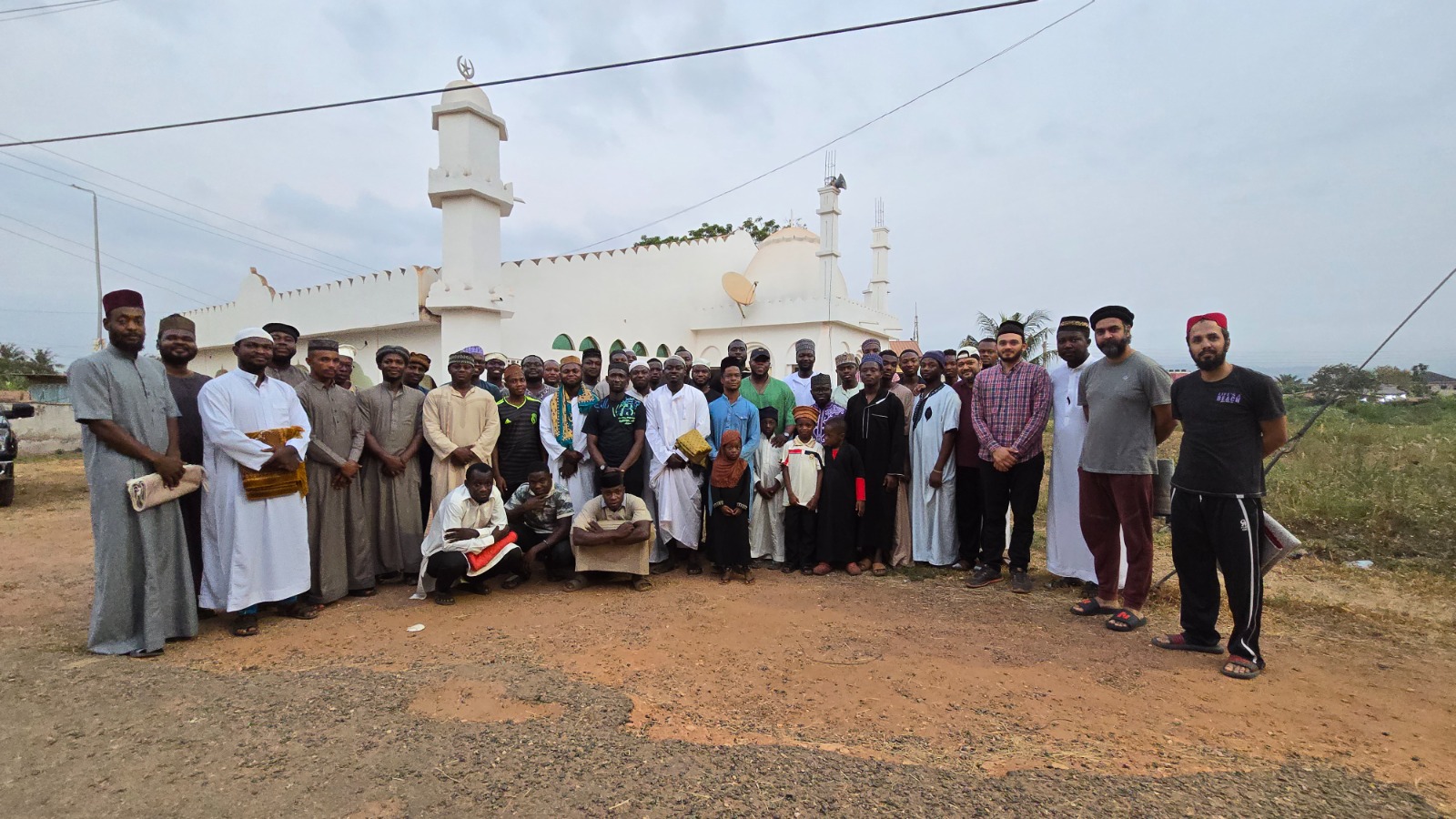
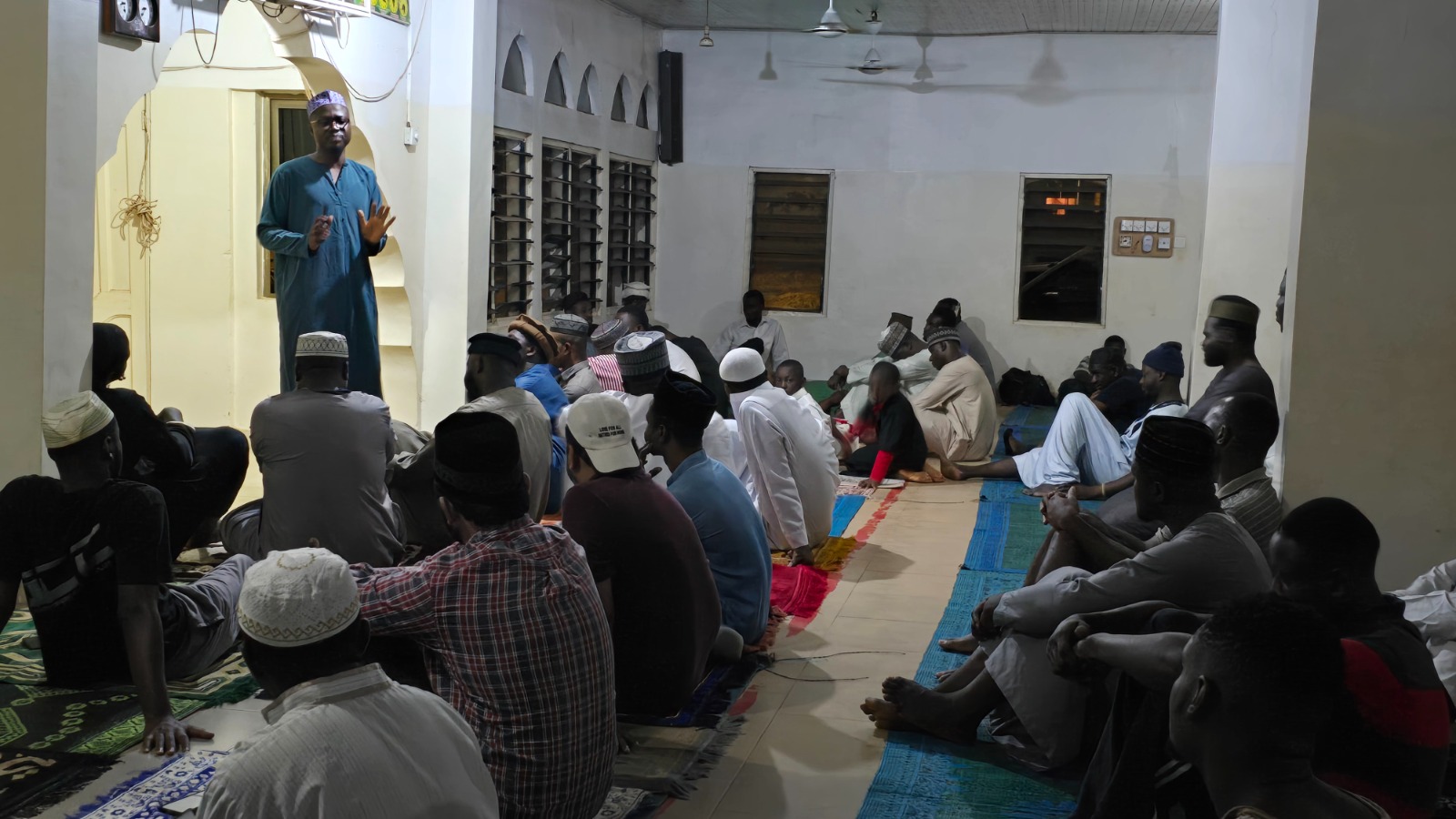

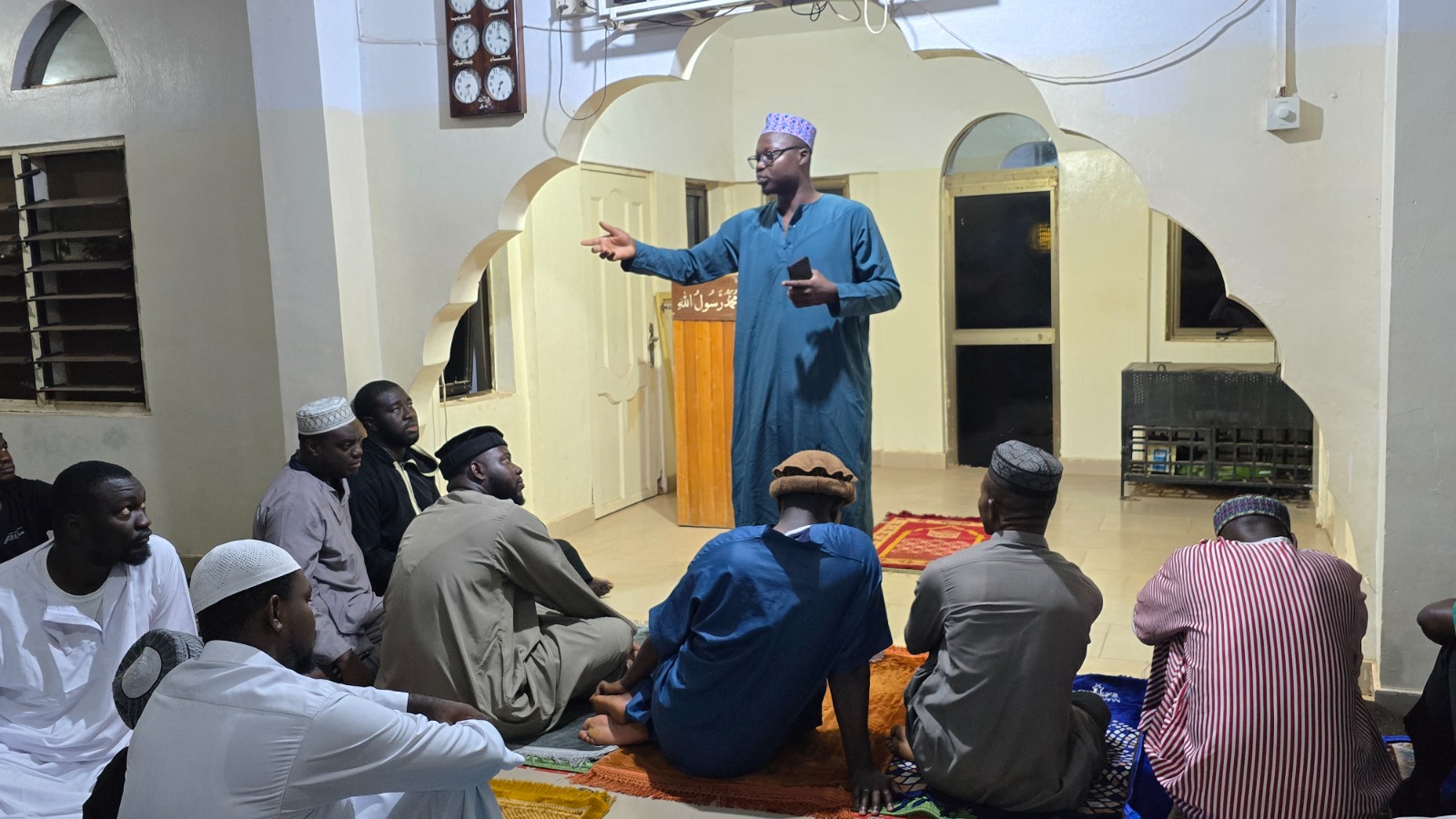
Story by:Fadl Rahman Essel, Muhtamim Isha’at, MKA Ghana.
Previous Articles
The uniform that shaped me: A journey ofreflection and renewal.
